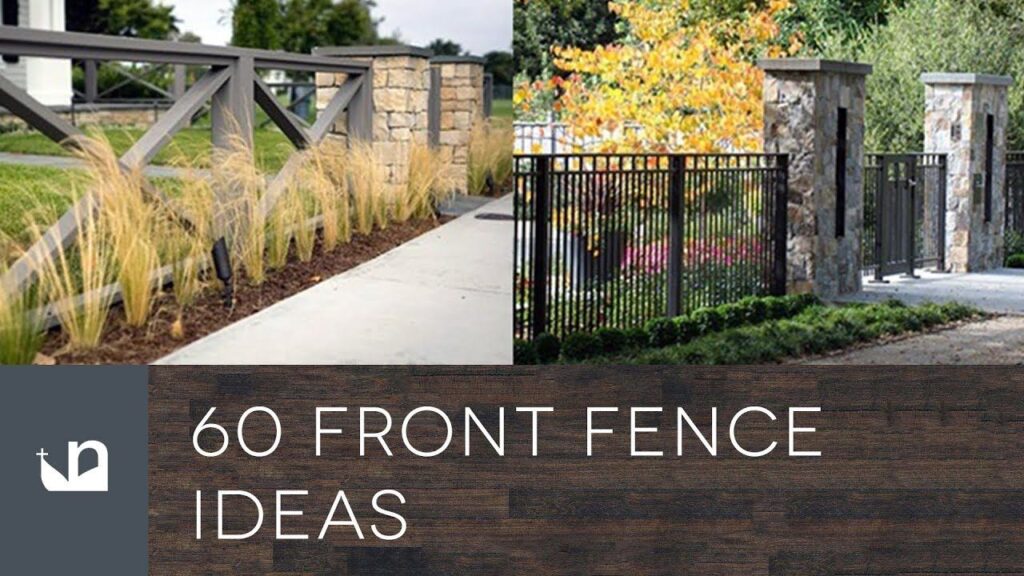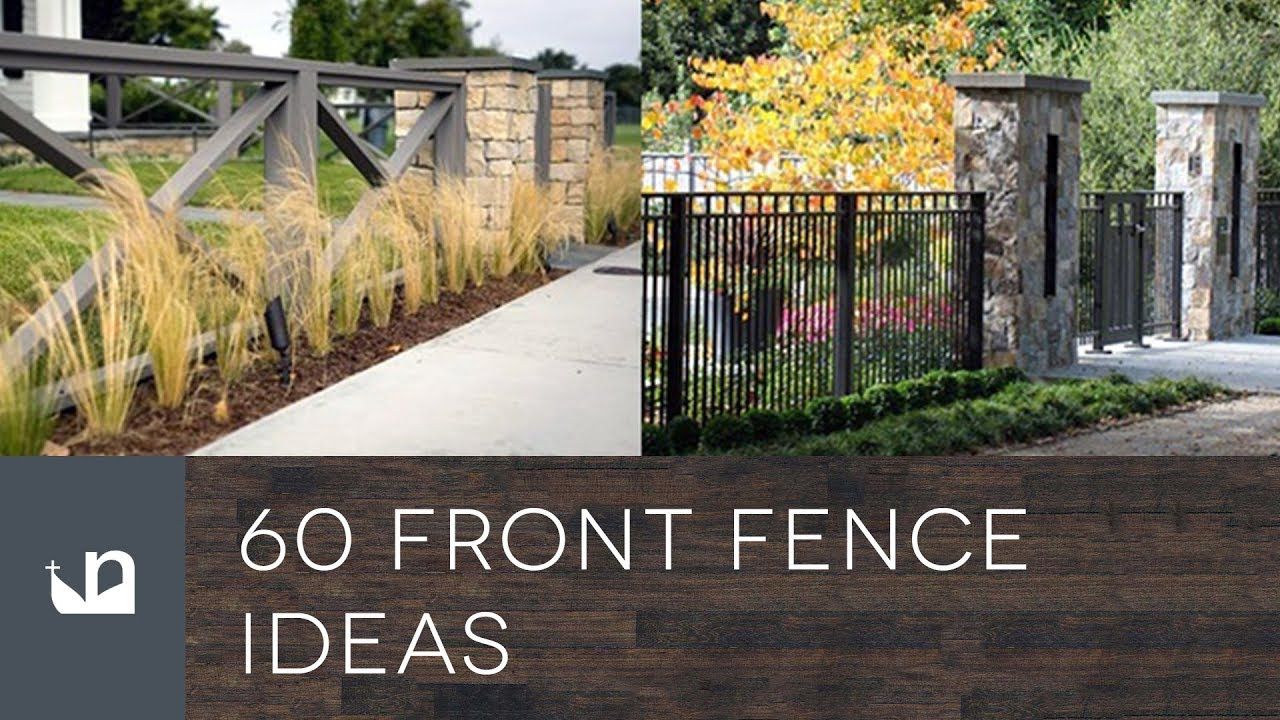
Privacy Fences for Small Front Yards: Maximizing Space and Security
Finding the right balance between privacy and aesthetics can be challenging, especially when dealing with smaller front yards. A well-chosen privacy fence not only enhances security but also boosts curb appeal and creates a more secluded outdoor space. This article explores various privacy fences for small front yards, considering factors like material, height, design, and cost-effectiveness, to help you make an informed decision.
Why Choose a Privacy Fence for Your Small Front Yard?
Several compelling reasons exist for installing a privacy fence, particularly in urban or densely populated areas where front yards tend to be smaller:
- Enhanced Privacy: The most obvious benefit is increased privacy. A privacy fence shields your yard from prying eyes, creating a more comfortable and secluded environment.
- Increased Security: Fences act as a deterrent to potential intruders, providing an extra layer of security for your home and family.
- Noise Reduction: Solid privacy fences can help dampen street noise, creating a quieter and more peaceful outdoor space.
- Defined Boundaries: A fence clearly defines your property lines, preventing disputes with neighbors and establishing a sense of ownership.
- Curb Appeal: A well-designed privacy fence can significantly enhance the aesthetic appeal of your home, potentially increasing its value.
- Pet and Child Containment: A privacy fence keeps children and pets safely within your yard, preventing them from wandering into the street or other potentially dangerous areas.
Materials for Privacy Fences in Small Front Yards
The choice of material significantly impacts the look, cost, and longevity of your privacy fence. Here are some popular options:
Wood
Wood is a classic and versatile material, offering a wide range of styles and finishes. Common wood types include:
- Cedar: Naturally resistant to decay and insects, cedar is a durable and attractive option.
- Redwood: Similar to cedar, redwood is also naturally resistant to decay and insects, but it tends to be more expensive.
- Pressure-Treated Pine: A more affordable option, pressure-treated pine is treated with chemicals to resist decay and insects. However, it requires regular maintenance to prevent warping and cracking.
Wood fences offer a natural look that blends well with most landscapes. They can be painted or stained to match your home’s exterior. However, wood fences require regular maintenance, including painting or staining, to prevent rot and insect damage. A privacy fence made of wood needs periodic checks to ensure its structural integrity.
Vinyl
Vinyl fences are a low-maintenance alternative to wood. They are resistant to rot, insects, and fading, and they don’t require painting or staining. Vinyl fences come in a variety of styles and colors, and they are relatively easy to install. A privacy fence of vinyl can significantly reduce future maintenance costs.
Composite
Composite fences are made from a blend of wood fibers and recycled plastic. They offer the look of wood with the durability of vinyl. Composite fences are resistant to rot, insects, and fading, and they require minimal maintenance. They are a more expensive option than wood or vinyl, but they offer a longer lifespan. Considering a composite privacy fence is an investment in durability.
Metal
Metal fences, such as wrought iron or aluminum, offer a more modern and elegant look. They are durable and require minimal maintenance, but they can be more expensive than wood or vinyl. Metal fences can be customized with various designs and finishes. While often more ornamental, a metal privacy fence can be designed for solid coverage.
Bamboo
Bamboo fences are an eco-friendly and aesthetically pleasing option. They are made from sustainable bamboo stalks and offer a natural and unique look. Bamboo fences are relatively easy to install, but they may require some maintenance to prevent splitting and cracking. The natural look of a bamboo privacy fence complements many garden styles.
Design Considerations for Small Front Yard Privacy Fences
When choosing a privacy fence for a small front yard, consider the following design elements:
- Height: Local regulations often dictate the maximum height allowed for front yard fences. Choose a height that provides adequate privacy without overwhelming the space. A 6-foot fence is a common choice, but a shorter fence may be more appropriate for smaller yards.
- Style: Select a style that complements your home’s architecture and landscaping. Options include solid board fences, shadowbox fences, picket fences with closely spaced pickets, and lattice-top fences.
- Color: Choose a color that blends well with your home’s exterior and the surrounding landscape. Neutral colors like white, beige, and gray are popular choices.
- Landscaping: Incorporate landscaping around your privacy fence to soften its appearance and create a more inviting atmosphere. Plant shrubs, flowers, or vines along the fence to add color and texture.
Installation Options
You have two main options for installing your privacy fence:
- DIY Installation: If you’re comfortable with basic carpentry skills, you can install the fence yourself. This can save you money on labor costs, but it requires time, effort, and the right tools.
- Professional Installation: Hiring a professional fence contractor ensures that the fence is installed correctly and efficiently. This option is more expensive, but it provides peace of mind and guarantees a quality result.
Cost Considerations
The cost of a privacy fence varies depending on the material, height, style, and installation method. Wood fences are generally the most affordable option, while composite and metal fences are the most expensive. Labor costs for professional installation can add significantly to the overall cost. Before starting your project, get quotes from several contractors to compare prices and services. Budgeting is essential when considering a privacy fence.
Maintenance Tips
Proper maintenance is essential to prolong the life of your privacy fence. Here are some tips:
- Wood Fences: Regularly inspect wood fences for signs of rot, insect damage, and warping. Apply a fresh coat of paint or stain every few years to protect the wood from the elements.
- Vinyl Fences: Clean vinyl fences with soap and water to remove dirt and mildew.
- Composite Fences: Clean composite fences with soap and water or a pressure washer.
- Metal Fences: Inspect metal fences for rust and corrosion. Apply a rust-inhibiting primer and paint as needed.
- Bamboo Fences: Treat bamboo fences with a sealant to prevent splitting and cracking.
Permits and Regulations
Before installing a privacy fence, check with your local city or county government to determine if any permits or regulations apply. Some jurisdictions have restrictions on fence height, materials, and location. Failure to comply with these regulations can result in fines or the removal of your fence. Always verify before installing a privacy fence.
Enhancing Your Small Front Yard with a Privacy Fence
A privacy fence can transform your small front yard into a more private, secure, and aesthetically pleasing space. By carefully considering the material, design, and installation options, you can create a fence that meets your needs and enhances the value of your home. Remember to factor in the cost and ongoing maintenance requirements to make an informed decision. Consider the overall impact when choosing a privacy fence.
The right privacy fence can be a game-changer for small front yards, offering security, seclusion, and a boost to curb appeal. From classic wood designs to low-maintenance vinyl options, there’s a style to suit every taste and budget. By understanding the considerations and options available, homeowners can create a front yard that’s both functional and beautiful. A well-chosen privacy fence adds value and enjoyment to any property.
Selecting the ideal privacy fence for a compact front yard involves careful planning. Consider the aesthetic goals, budget constraints, and local regulations to make the best choice. Whether opting for a natural wood look or a modern metal design, the right fence can enhance the property’s overall appeal. Maintenance is also a key consideration to ensure the longevity of the privacy fence.
[See also: Garden Fence Ideas for Small Spaces]
[See also: Best Plants to Grow Along a Fence]

